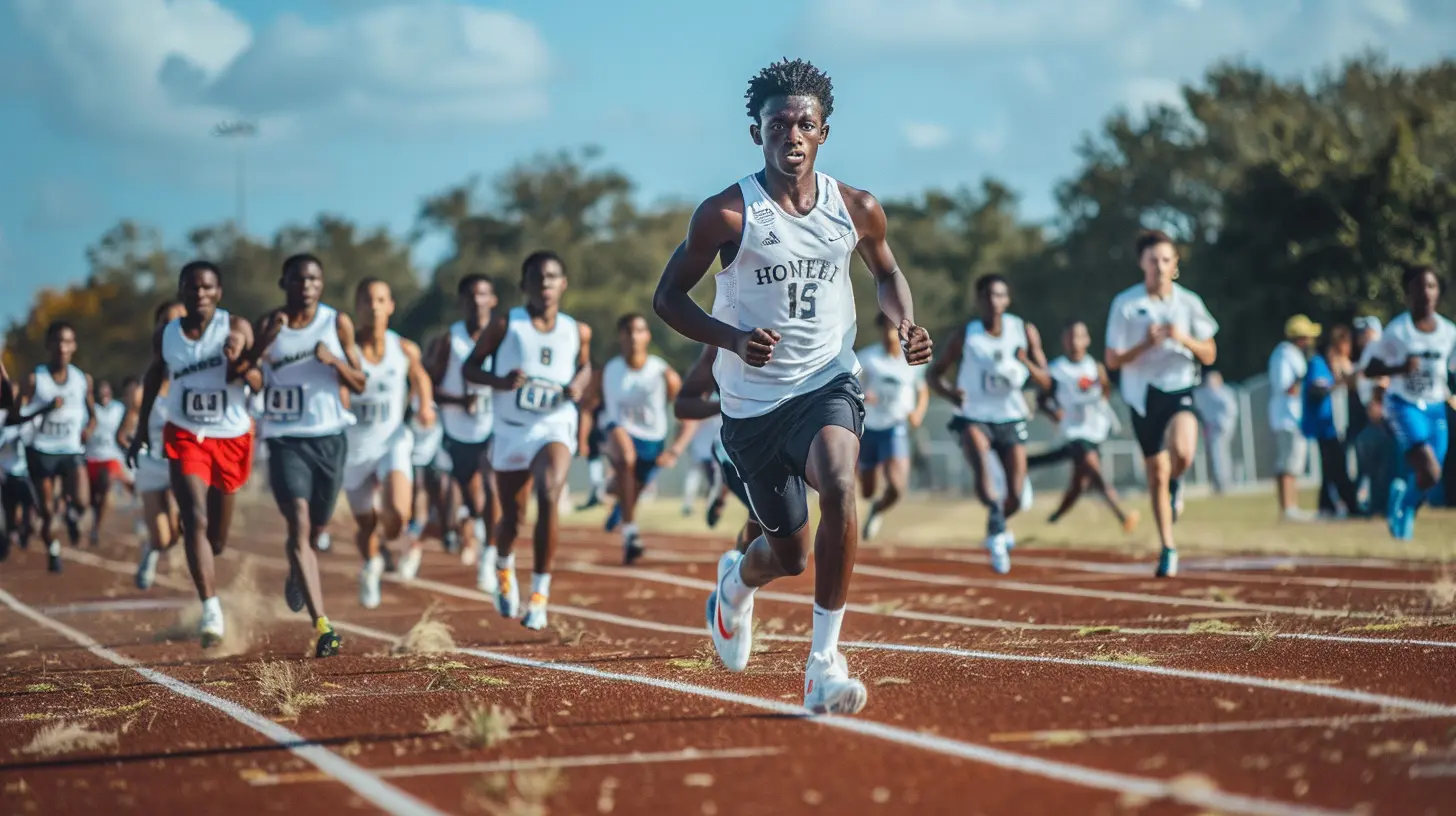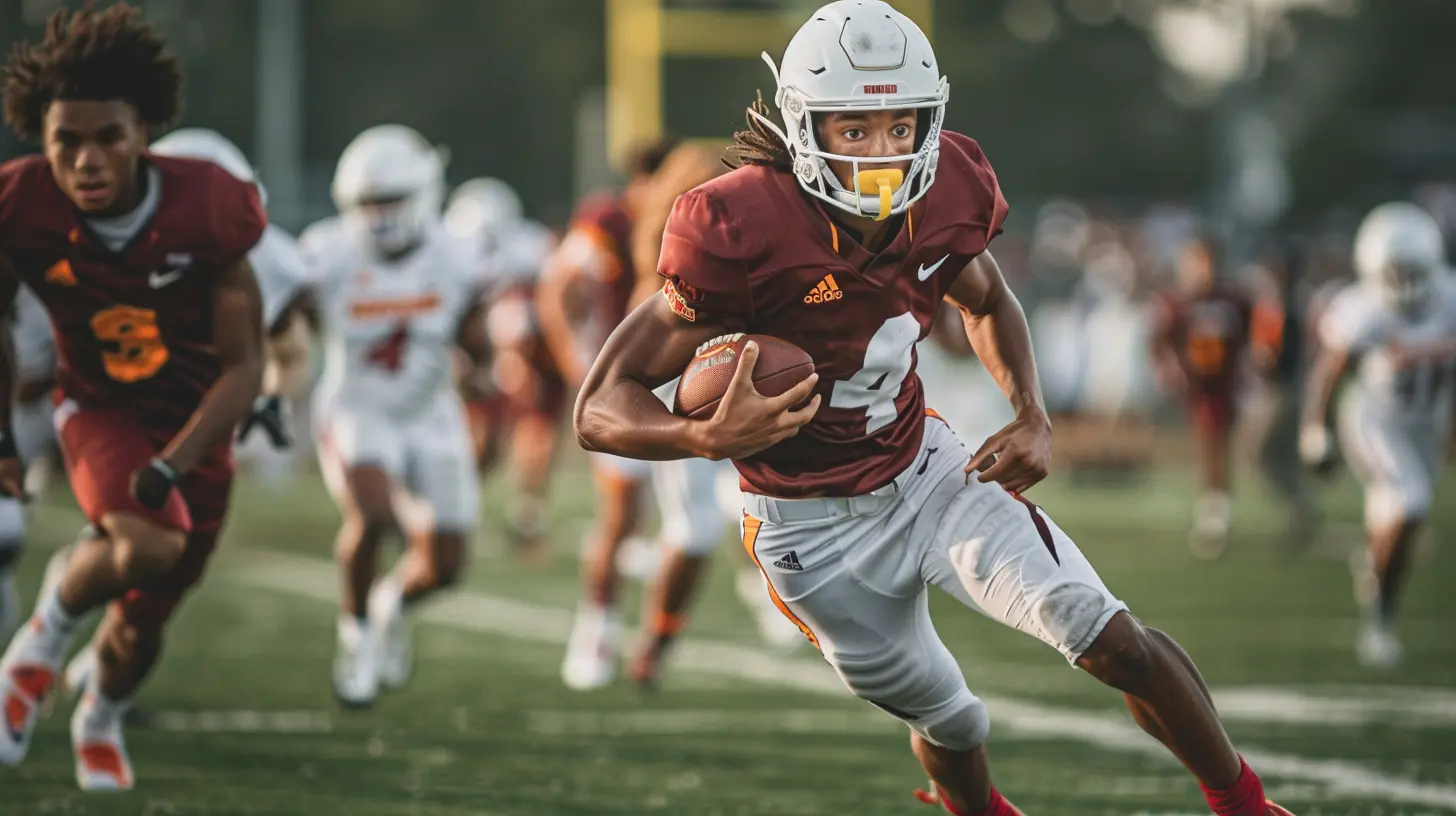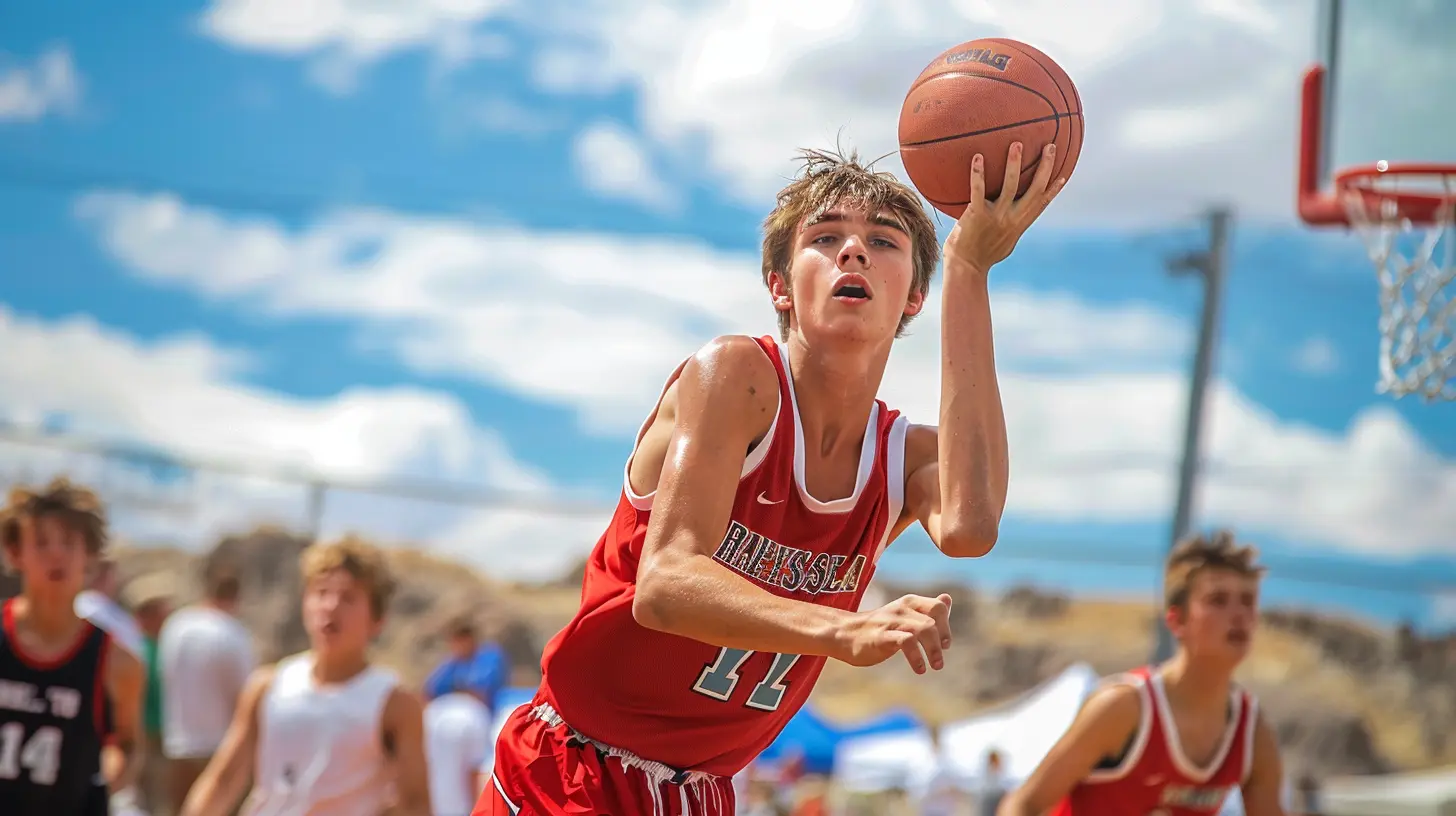Recruiting Tips for High School Athletes Looking to Play at the Next Level
5 November 2025
So, you've got a dream—a big one. You're putting in the work at practice, crushing your games, and staying late to get those extra reps in. Maybe you've already pictured yourself suiting up for a college team one day, with the crowd roaring and your name on the loudspeaker. But here's the thing: talent alone won’t get you recruited.
If you're serious about playing your sport at the next level—whether that's DI, DII, DIII, NAIA, or JUCO—you've got to be smart, strategic, and above all, motivated. And that’s where this guide comes in. We’re talking straight-up, actionable recruiting tips that will give you an edge and help you stand out in a sea of talented athletes.
Let's make those dreams a reality.
Table of Contents
1. Start Early and Stay Prepared2. Understand Your Level of Play
3. Academics Matter More Than You Think
4. Get Your Highlight Reel Right
5. Build a Killer Athletic Resume
6. Use Social Media to Your Advantage
7. Communicate With Coaches the Right Way
8. Attend Camps and Showcases
9. Be Realistic, But Stay Ambitious
10. Surround Yourself With a Support System
11. Stay Consistent and Trust the Process

Start Early and Stay Prepared
Let’s get one thing straight: the recruiting process isn't something you can cram into your senior year. Coaches start identifying prospects early—sometimes as early as freshman or sophomore year. That doesn’t mean you need to have your entire future mapped out at 14, but it does mean you need to be proactive.Start by researching schools, understanding different divisions, and figuring out what kind of athletic and academic standards they have. Keep track of your stats, awards, and team accomplishments from the beginning. Think of it like a game—if you want to win, you've got to plan your strategy early.
Understand Your Level of Play
Not everyone is going DI, and that's okay.There’s serious talent in every level of college athletics, and finding your best fit is more important than chasing labels. Be honest about your abilities. Ask yourself:
- Can I consistently compete at a high level?
- What are other athletes at this level doing that I’m not?
- How do my stats stack up?
Watch college games to compare pace, athleticism, and style of play. Your coach can also give you insight into what level suits you best. Remember, playing time beats bench-warming every single time, no matter the division.
Academics Matter More Than You Think
Here's the truth: your GPA can open—or slam shut—more doors than your performance on the field.College coaches are not just looking for athletes. They want STUDENT-athletes. A strong academic profile makes you a more attractive recruit, especially for programs with limited scholarships. Good grades show discipline, time management, and dedication—qualities every coach drools over.
Plus, if your academics are solid, you may qualify for academic scholarships—even at schools that don’t offer athletic money.
So yeah, hit the books just as hard as you hit the weight room.
Get Your Highlight Reel Right
Let’s talk tape.Your highlight reel is your first impression—it’s your handshake, your elevator pitch, your shot to grab a coach's attention. You’ve got about 30 seconds to make someone say, “Whoa, who’s this kid?” So keep it short, sweet, and powerful.
Tips for a great highlight reel:
- Start strong. Lead with your best plays.
- Focus on game footage, not practice drills.
- Use a clean layout—no crazy effects, just you doing what you do best.
- Identify yourself clearly at the beginning of each clip.
And please, include your contact info at the end. Make it easy for coaches to reach out.
Build a Killer Athletic Resume
Think of your resume as your recruiting cheat sheet.It should include:
- Your basic info (height, weight, position)
- Contact info and your coach’s info
- Academic stats (GPA, SAT/ACT scores)
- Athletic stats (40-yard dash, vertical, etc.)
- Honors and achievements
- Upcoming competition schedule
Keep it one page, easy to read, and up to date. You want coaches to glance at your resume and know exactly what you're about.
Use Social Media to Your Advantage
Love it or hate it, social media is part of the recruiting game now.Coaches aren’t just checking out your highlights—they’re checking YOU out. How do you carry yourself online? Are you positive, motivated, and coachable? Or are you posting things that raise red flags?
Use platforms like Twitter and Instagram to:
- Share game highlights
- Post updates on your progress
- Tag schools or coaches (respectfully)
- Show who you are off the field in a good light
Bottom line? Be authentic, but be smart. Your social media is basically your brand.
Communicate With Coaches the Right Way
Don’t wait to be discovered—make contact.Sending an email to a coach isn’t weird. In fact, it’s expected. Coaches can't find everyone, so be on their radar early. Here’s how to do it right:
- Personalize each message. Mention something specific about the program.
- Be respectful and polite.
- Include your highlight video, resume, and transcripts.
- Follow up if you don’t hear back—but don’t spam.
If you get a reply? Respond promptly. Coaches want someone who’s serious, humble, and ready to work.
Attend Camps and Showcases
Want to get seen? Get on the field—in front of the right eyes.College camps give you the chance to:
- Compete against top talent
- Learn from college coaches directly
- Get honest feedback
- Potentially earn an offer or a spot on a watchlist
Choose camps strategically—don’t attend random ones just for fun. Target schools you’re interested in and where your skillset fits.
And when you show up? Compete like your future depends on it—because it might.
Be Realistic, But Stay Ambitious
There’s a fine line between confidence and cockiness—and between realism and selling yourself short.Know your value, but also know there are thousands of athletes gunning for the same spots. Just because one coach says no doesn’t mean it’s over. Maybe that program wasn’t the right fit anyway.
Keep pushing, keep improving, and don’t be afraid to adjust your goals. The right opportunity will come if you stay hungry and humble.
Surround Yourself With a Support System
You don’t have to do this alone.Your parents, coaches, teammates, teachers—they all play a part. Lean on them for guidance, feedback, and encouragement. Talk with your high school or club coach about which programs might suit you best. Ask teammates who’ve been through the process what they learned.
Even just having someone in your corner during hard times can make a huge difference. Recruiting can be stressful. Don’t carry the whole weight by yourself.
Stay Consistent and Trust the Process
Here’s the deal: recruiting rarely follows a straight path.One week you might feel like the offers are about to roll in. The next week? Radio silence. It’s a rollercoaster. But consistency is what separates those who make it from those who don’t.
Keep improving your game.
Keep sending emails.
Keep grinding in the gym.
Keep your GPA up.
Keep believing in yourself.
Remember, someone is always watching—even when you think no one is. Your breakthrough could be one play, one game, or one message away. Don’t let up.
Final Thoughts
You’re not just an athlete. You’re a dreamer, a hard worker, and someone who wants more than just high school glory. The recruiting process isn’t easy, but if you stay focused, play smart, and stay true to who you are, you’ll find your fit.And when you finally put on that college jersey, remember—it wasn’t luck. It was your hustle.
So go chase it. You've got this.
all images in this post were generated using AI tools
Category:
High School SportsAuthor:

Frankie Bailey
Discussion
rate this article
1 comments
Trevor Scott
In the dance of dreams where aspirations meet, High school athletes rise on ambition's heartbeat. Craft your story with passion and grace, Forge connections, let talent embrace. With diligence and spirit, the path will unfold, Chasing glory in fields where legends are bold. Let your journey be vibrant, let your spirit be gold.
November 16, 2025 at 5:15 AM

Frankie Bailey
Thank you for capturing the essence of ambition and dedication in sports! Your poetic perspective beautifully emphasizes the importance of passion and connection in the recruiting journey.


